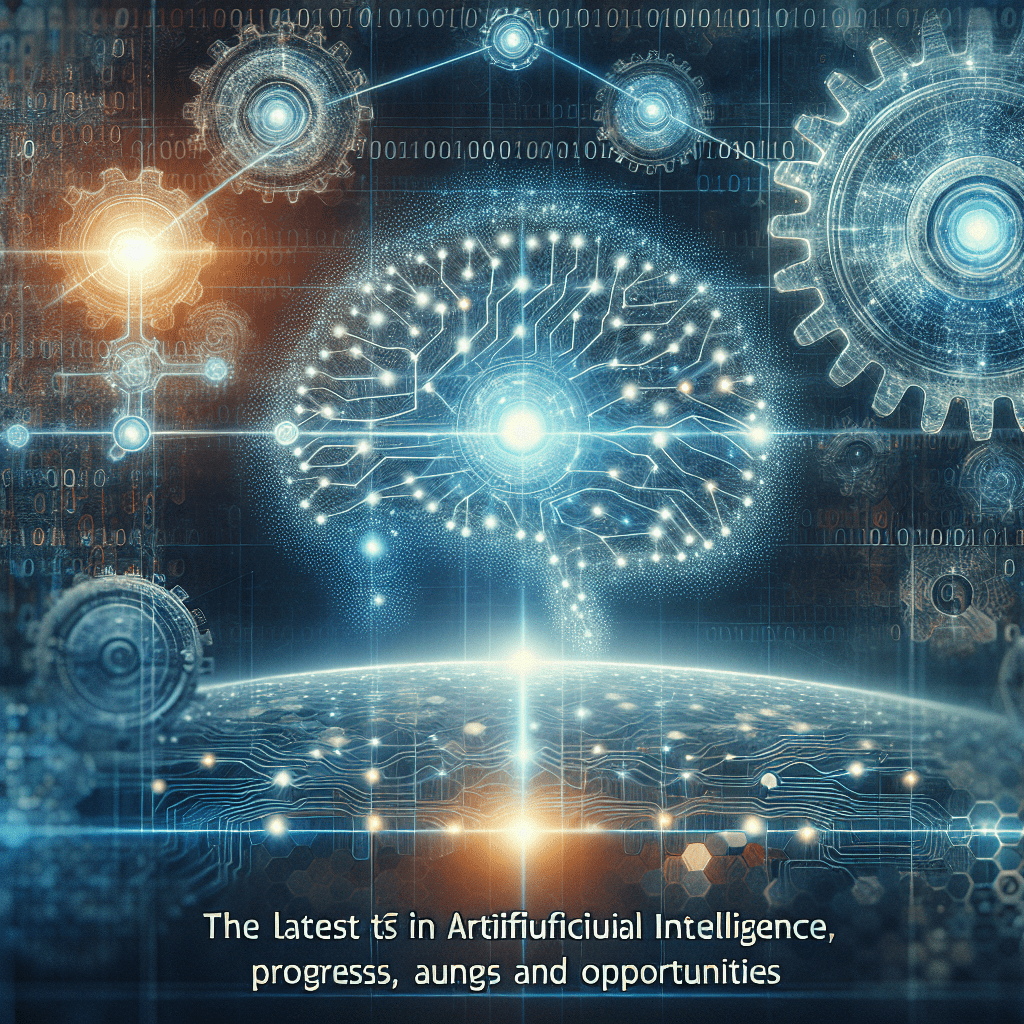The Latest in Artificial Intelligence: Progress, Challenges, and Opportunities
Artificial Intelligence (AI) has come a long way in recent years, with advancements in technology enabling innovative new applications across various industries. From self-driving cars to virtual assistants, AI is revolutionizing the way we live and work. In this article, we will explore the latest progress, challenges, and opportunities in the field of artificial intelligence.
Progress in Artificial Intelligence
One of the most significant developments in AI in recent years is the rise of deep learning algorithms. These algorithms have enabled machines to analyze and interpret complex data sets with unprecedented accuracy and speed. Deep learning has fueled advancements in areas such as image recognition, natural language processing, and autonomous decision-making.
Another key advancement in AI is the growth of reinforcement learning algorithms. These algorithms allow machines to learn from their experiences and improve their performance over time. Reinforcement learning is at the core of many cutting-edge AI Applications, including autonomous drones and robotic systems.
Furthermore, AI technology has become more accessible and affordable, thanks to the availability of open-source software libraries and cloud computing resources. This has enabled small businesses and startups to develop AI-powered solutions without the need for massive upfront investments.
Challenges in Artificial Intelligence
Despite the rapid progress in AI technology, there are still several challenges that need to be addressed. One of the main challenges is the lack of transparency and accountability in AI decision-making processes. Machine learning models can be biased or make errors, leading to unfair outcomes or unsafe actions.
Another challenge is the ethical implications of AI technology, particularly in areas such as privacy, surveillance, and job displacement. AI systems have the potential to infringe on individual rights and disrupt traditional employment patterns, raising concerns about social inequality and economic instability.
Lastly, the issue of data security and cyber threats is a significant challenge for AI developers. As AI systems become more interconnected and autonomous, they are increasingly vulnerable to cyber attacks and malicious manipulation. Ensuring the safety and integrity of AI systems is crucial for maintaining trust and confidence in the technology.
Opportunities in Artificial Intelligence
Despite the challenges, there are numerous opportunities for innovation and growth in the field of artificial intelligence. AI has the potential to revolutionize industries such as healthcare, finance, manufacturing, and transportation, by improving efficiency, accuracy, and cost-effectiveness.
AI-powered technologies such as predictive analytics, robotic process automation, and personalized recommendations are already transforming the way businesses operate and interact with customers. By leveraging AI tools and insights, companies can streamline operations, enhance customer experiences, and drive competitive advantage in the market.
Furthermore, AI is driving advancements in scientific research and exploration, with applications in areas such as drug discovery, climate modeling, and space exploration. By harnessing the power of AI algorithms and data analytics, researchers can accelerate innovation and make breakthrough discoveries in complex scientific problems.
Conclusion
In conclusion, artificial intelligence is a rapidly evolving field with endless possibilities for progress and innovation. While there are challenges to overcome, such as ethical concerns and cybersecurity risks, the opportunities for leveraging AI technology are vast and diverse. By embracing AI solutions and best practices, businesses and organizations can unlock new levels of productivity, efficiency, and competitiveness in the digital age.
FAQs
1. What is artificial intelligence?
Artificial intelligence is a branch of computer science that aims to create intelligent machines capable of performing tasks that typically require human intelligence, such as reasoning, problem-solving, and learning.
2. What are some examples of AI Applications?
Some common examples of AI Applications include virtual assistants like Siri and Alexa, self-driving cars, facial recognition technology, and predictive analytics software used in business decision-making.
3. What are the ethical concerns associated with AI technology?
Some ethical concerns associated with AI technology include privacy issues, bias in decision-making algorithms, job displacement due to automation, and the potential misuse of AI for surveillance or military purposes.
Quotes
“The development of full artificial intelligence could spell the end of the human race.” – Stephen Hawking
Tell me about a time when you overcame a difficult challenge.


